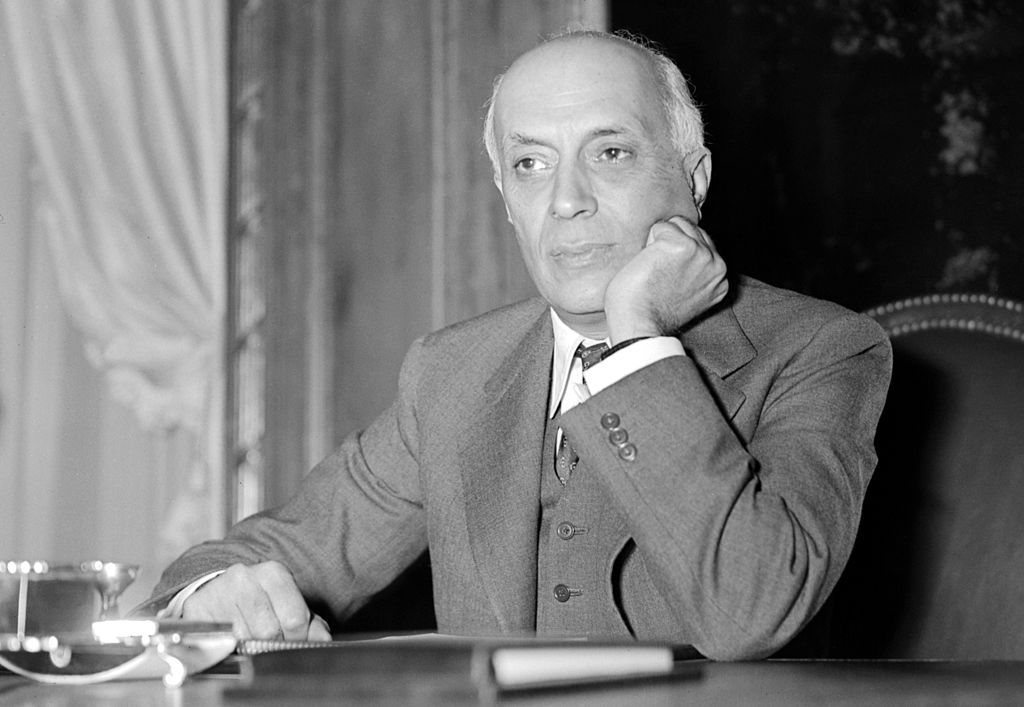- Thursday, May 02, 2024

By: Shubham Ghosh
India might avoid declassifying papers related to Kashmir from 1947 fearing the “sensitive” reports could impact its foreign relations, internal government documents have said, according to The Guardian.
The reports or letters, known as Bucher papers, are believed to feature political and military arguments for why Jawaharlal Nehru, India’s first prime minister (1947-64), sought a ceasefire with Pakistan and gave a special status to the former state of Jammu and Kashmir, the report added.
India and Pakistan became two independent entities following the Partition of British India in August 1947 and they have fought a number of wars over Kashmir in the last seven decades and half.
For many decades, the region was given a special constitution, a flag as well as autonomy over all matters except for foreign affairs and defence. For the Kashmiris, the measures were crucial to protecting their rights in the former state, India’s only Muslim-majority one.
In August 2019, the Indian government led by Hindu nationalist Bharatiya Janata Party led by prime minister Narendra Modi revoked Kashmir’s constitutional autonomy to integrate it fully with India. It also became a Union Territory.
The decision, which tightened the government’s hold over the region, received a backlash and a three-decade-old armed revolt continued against New Delhi. Attacks on outsiders and non-Muslims in the state have increased over the last few years even though the Modi government has claimed time and again that terror incidents in the state have come down.
The Bucher papers refer to communications between Gen Sir Francis Robert Roy Bucher, who was the second commander-in-chief of the Indian army between 1948 and 1949, and officials of the government of the newly independent India, including Nehru.
Activists have made several attempts over the years to declassify the papers so that the reasoning for the now defunct Article 370 of the Indian Constitution, which gave Jammu and Kashmir the special status, is revealed.
A recent document from the Indian foreign ministry seen by The Guardian said the papers should not be declassified yet.
The papers contain “military operational matters in Kashmir and correspondences amongst senior government leaders on sensitive political matters on Kashmir”, the document said, according to the publication.
The papers have been kept at the Nehru Memorial Museum and Library in New Delhi, an autonomous body under India’s culture ministry.
According to an informed source, the documents reveal that Nehru was aware of the military development in Kashmir, including the neighbouring country’s attempts to use external military aid to escalate the situation there.
“Roy Bucher suggested a political approach to solve the escalating situation given military fatigue faced by Indian troops due to 13 months of military deployment, including taking the matter before the United Nations,” the source was quoted as saying.
That advice may have influenced Nehru’s call to grant Kashmir the special status.
In 1952, he argued that the aspirations of the people of Kashmir should be taken into consideration. “
I want to stress that it is only the people of Kashmir who can decide the future of Kashmir,” he told the Indian parliament. “We are not going to impose ourselves on them on the point of the bayonet.”
The Bucher papers were handed over by India’s external affairs ministry to the Nehru museum and library in 1970 — six years after Nehru’s death — with a note saying they should be kept “classified”.
They have remained in the library’s closed collection ever since, the foreign ministry’s document said.
Activist Venkatesh Nayak has filed several appeals to declassify the documents, a move that was initially rejected.
In 2021, however, the Indian information commissioner said it was in the “national interest” but did not order the documents’ disclosure.
Rather, it advised that the library may seek permission from the foreign ministry to declassify the papers for the purpose of academic research.
According to a letter dated October 12, 2022 and which has been reviewed by The Guardian, the chair of the museum and library, Nripendra Misra, wrote to the country’s foreign secretary arguing the papers “are very important for scholarly research” and requested declassification.
“We have read the contents of the Bucher papers. Our view is that the papers need not remain ‘classified’ beyond the reach of academicians. We are opening papers of other important public figures also,” he said.
The foreign ministry said in the document that the papers’ disclosure should be put in “abeyance” for now and advised that the “sensitivity of Roy Bucher papers and the likely implications of their disclosure” should be examined further.
According to the sources, the government has yet to take a final call on the matter.
India typically allows declassification of archival documents after 25 years.
![]()